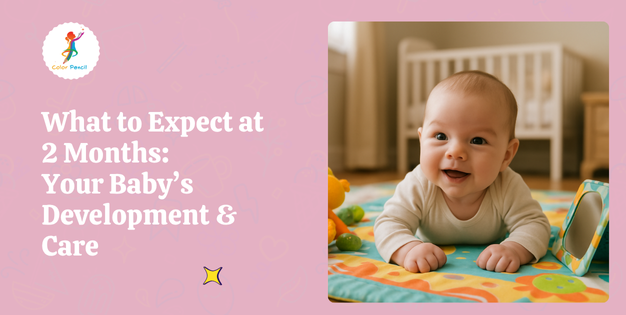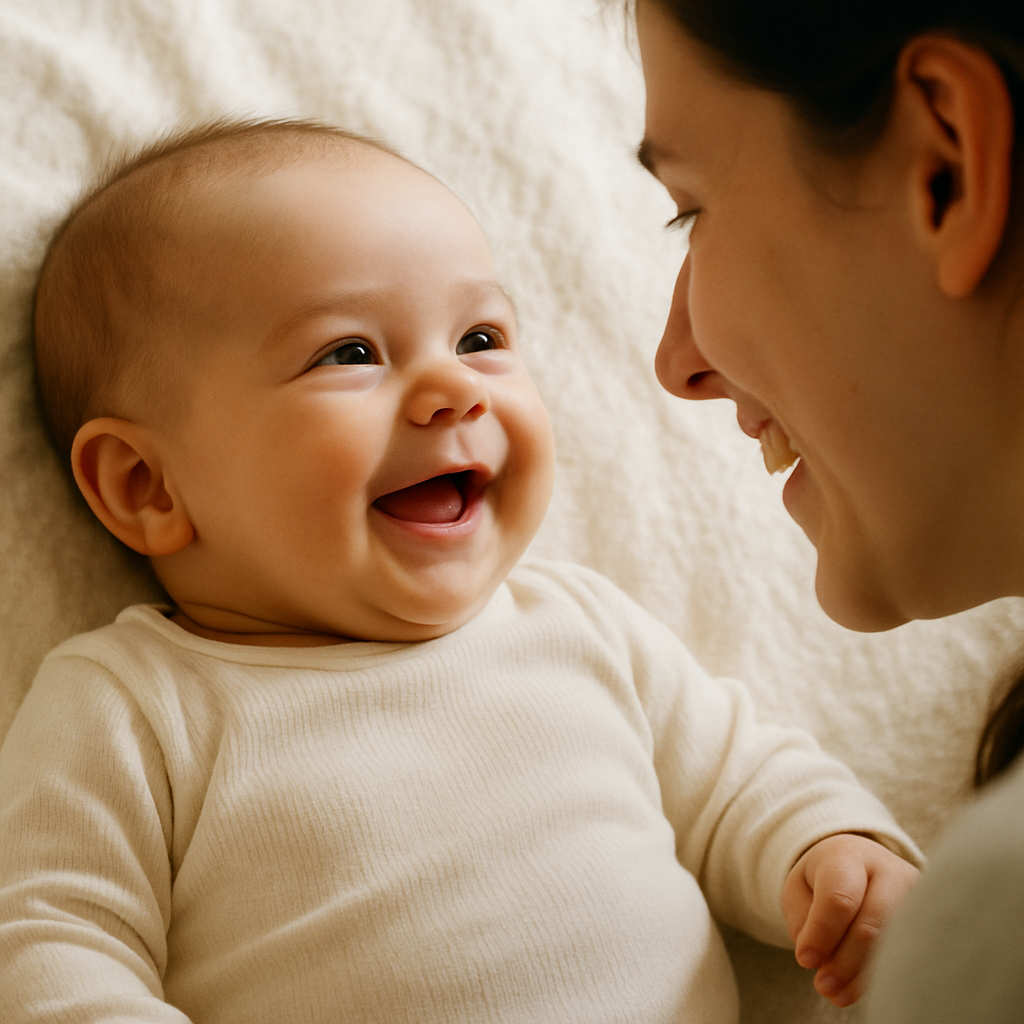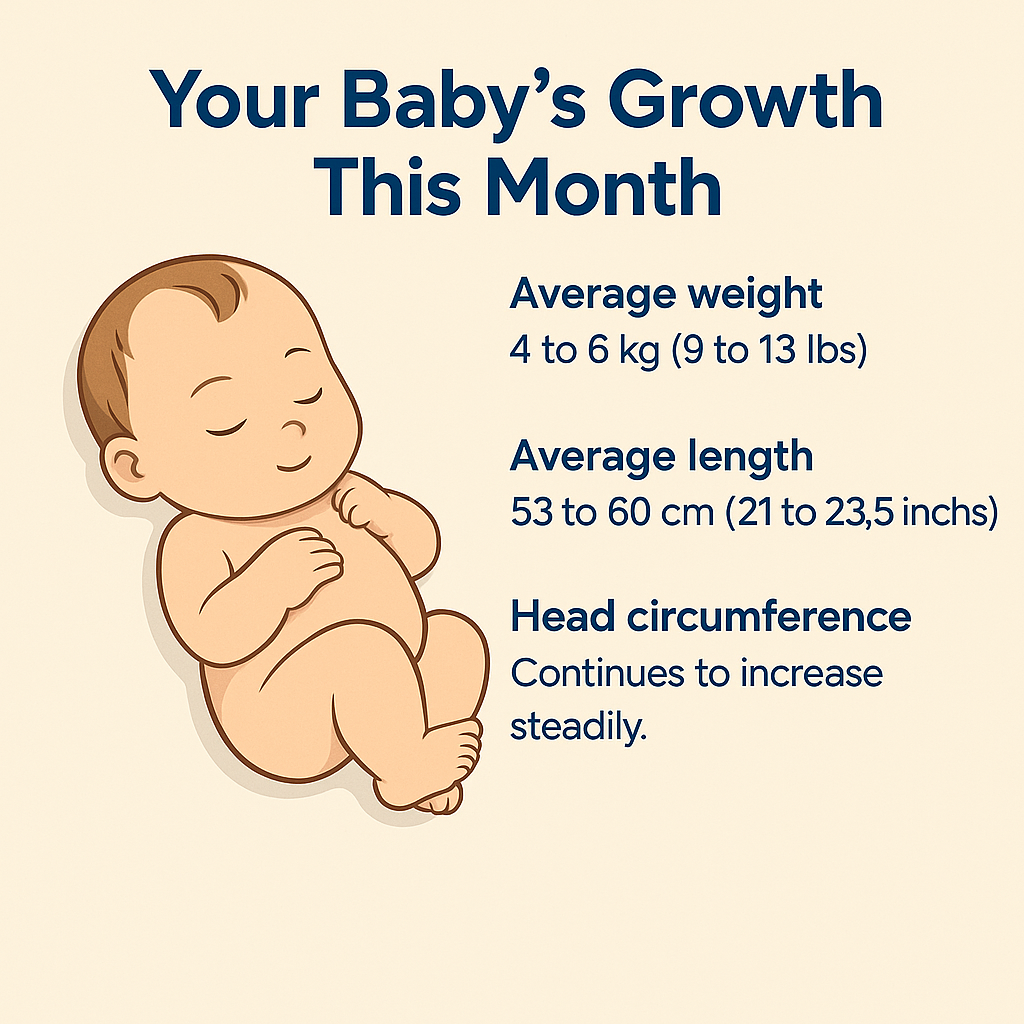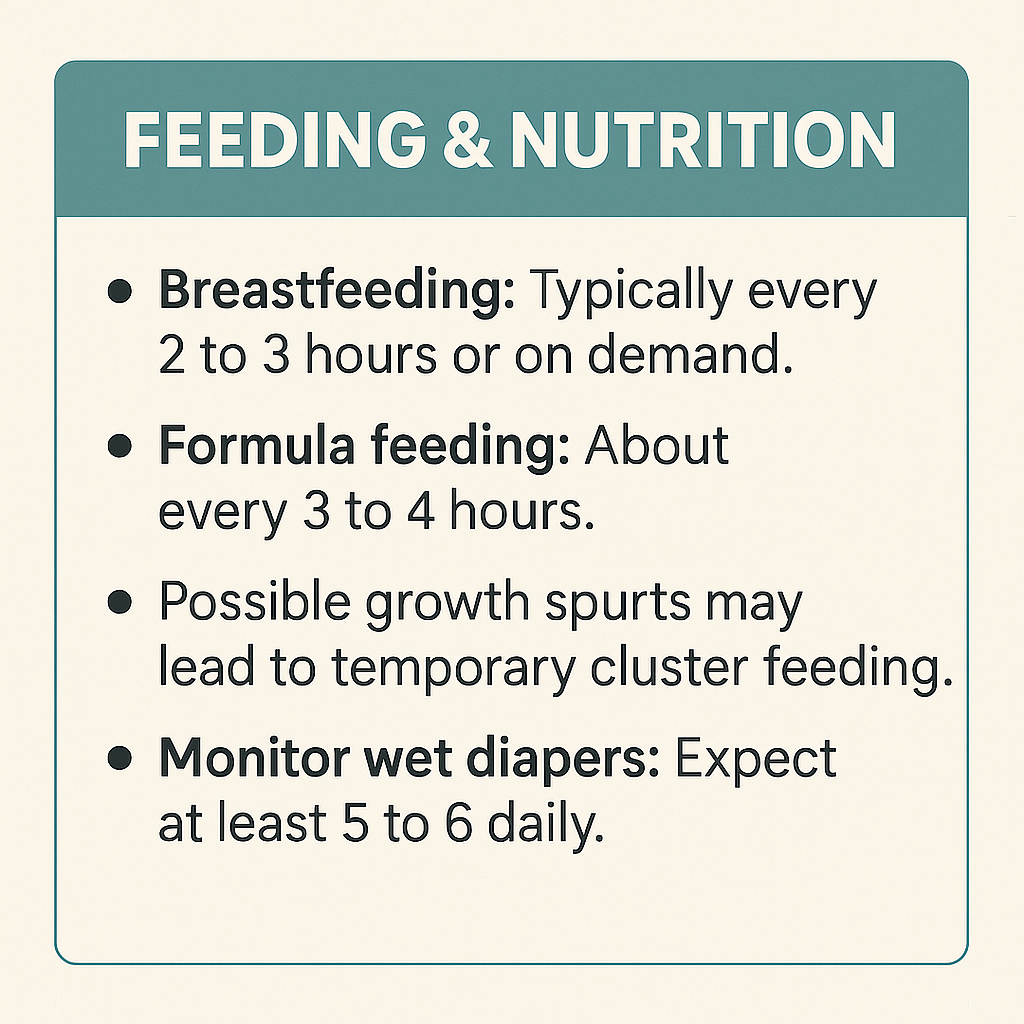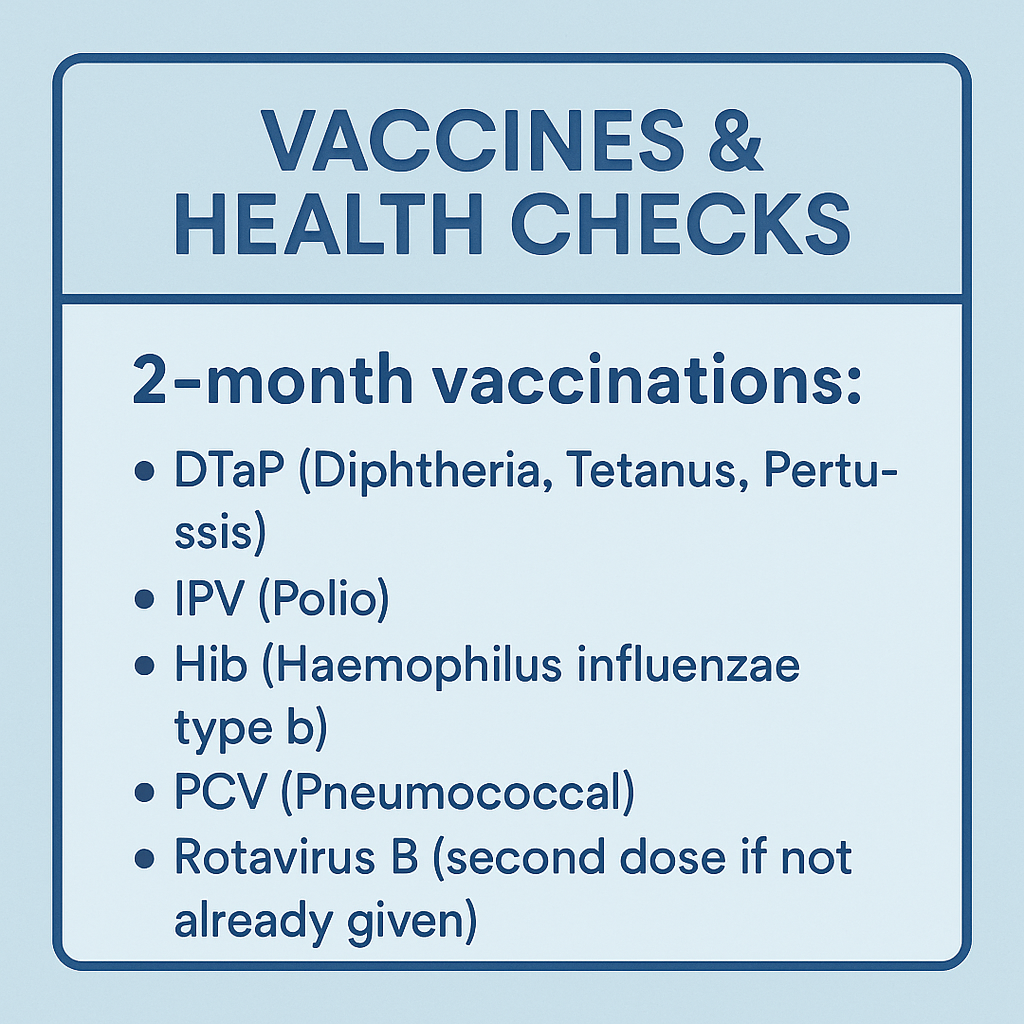Milestones, Growth, Sleep, Feeding, and Parental Tips for the Second Month
Your baby is no longer a newborn! At 2 months, many infants begin to show the first glimpses of their emerging personality. You might notice more alertness, improved head control, and even the much-anticipated first social smiles. While feeding and sleeping still dominate your baby’s day, developmental leaps are happening quietly in the background.
Here’s what to expect during your baby’s second month.
🍼 Your Baby’s Growth This Month
- Average weight: 4 to 6 kg (9 to 13 lbs).
- Average length: 53 to 60 cm (21 to 23.5 inches).
- Head circumference: Continues to increase steadily.
Note: Growth varies from baby to baby. Regular pediatric visits help ensure healthy progress.
👶 Developmental Milestones
Your 2-month-old may be working on:
- Head control: Lifting and holding the head briefly during tummy time.
- Vision: Better focus and ability to follow moving objects.
- Social smiles: Responding to familiar faces with big, heart-melting smiles.
- Cooing and gurgling: Early vocalization efforts.
- Movement: Smoother arm and leg motions compared to the newborn period.
🎯 Firsts to Watch For
- First social smile (if not already).
- Following faces and objects with eyes.
- Increasing alertness and longer awake periods.
- Early recognition of caregivers.
🍽 Feeding & Nutrition
- Breastfeeding: Typically every 2 to 3 hours or on demand.
- Formula feeding: About every 3 to 4 hours.
- Possible growth spurts may lead to temporary cluster feeding.
- Monitor wet diapers: Expect at least 5 to 6 daily.
🌙 Sleep Patterns
- Total sleep: Around 14 to 17 hours per day.
- Some babies may begin longer nighttime stretches (4–6 hours), though this varies widely.
- Continue safe sleep practices: back sleeping, firm mattress, no loose bedding.
💉 Vaccines & Health Checks
- 2-month vaccinations:
- DTaP (Diphtheria, Tetanus, Pertussis)
- IPV (Polio)
- Hib (Haemophilus influenzae type b)
- PCV (Pneumococcal)
- Rotavirus
- Hepatitis B (second dose if not already given)
- Your baby’s doctor will also check growth, feeding, head control, and developmental progress.
🤒 Common Health Notes
- Mild fussiness or sleep changes may occur after vaccinations.
- Gas, colic, or reflux might still be present but often improve by 3 to 4 months.
- Contact your pediatrician for any fever above 100.4°F (38°C) or unusual symptoms.
🔔 Parental Care Reminders
- Continue tummy time to build strength and motor skills.
- Look after your own well-being—sleep deprivation and emotional ups and downs are still common.
- Start incorporating daily routines (like bedtime rituals) to help your baby adjust over time.
Pro Tips for Parents This Month
- Engage in face-to-face time—your baby loves looking at your face.
- Talk and sing regularly to encourage language development.
- Consider beginning short outings or stroller walks to expose your baby to new sights and sounds.
- Capture those first smiles—you’ll cherish them forever.
Final Thoughts
Your baby’s second month is full of subtle but significant changes. From cooing sounds to smiles, these milestones signal the start of your child’s growing awareness and personality. Celebrate every new development while continuing to nurture and support your baby’s unique growth journey.
Visited 160 times, 1 visit(s) today

